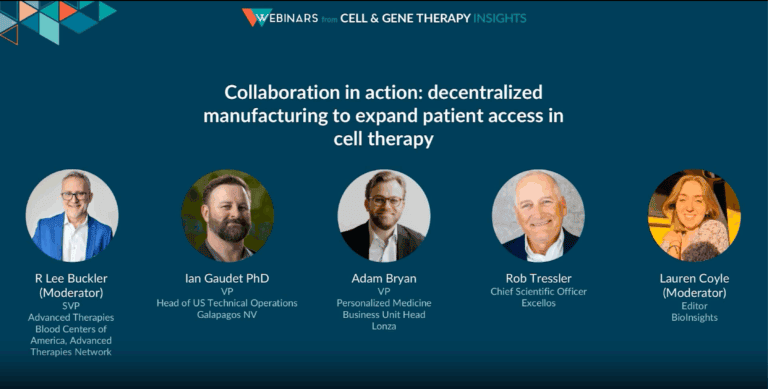Robust pipeline demonstrated at Advanced Therapies Week 2024
As we reflect on the monumental strides made in 2023 within the field of cell and gene therapy, Advanced Therapies Week 2024 served as an inspiring launchpad for the year ahead. Groundbreaking approvals like gene therapies for sickle cell disease brought hope for rare illnesses, while advances in cancer treatment and robust pipelines promise more breakthroughs.
The industry has forged a robust pipeline in the advanced therapies space for the past 10 years, and the excitement is palpable. One thing we noticed this year at Advanced Therapies Week 2024 was the increase in autoimmune indications in this field, which is a refreshing addition to the already cutting-edge therapeutic space. We saw significant investments from the likes of AstraZeneca, indicating the momentum in this space.
One thing we noticed this year at Advanced Therapies Week 2024 was the increase in autoimmune indications in this field, which is a refreshing addition to the already cutting-edge therapeutic space.
Autoimmune diseases mediated by autoreactive antibodies which are secreted by B cells, make these cells promising therapeutic targets. CD19-targeting CAR T cells have shown short-term efficacy in systemic lupus erythematosus (SLE) by depleting autoantibody-secreting cells, demonstrating potential superiority over monoclonal antibodies. A study in Molecular Therapy: Methods & Clinical Development by Nunez et al. explores the impact of CD19-CAR T cell therapy on proinflammatory cytokines, autoantibodies, and vaccine-induced protective antibodies in SLE patients. While promising, controlled trials and long-term outcome data for CD19-CAR T cell therapies in autoimmune diseases are still pending, and ongoing trials are exploring more targeted approaches, such as chimeric autoantibody receptors (CAARs), to minimize immune depletion.
Autoimmune diseases mediated by autoreactive antibodies which are secreted by B cells, make these cells promising therapeutic targets.
T cell mediated autoimmune disorders are a more complex issue, but studies are ongoing to identify therapeutic approaches to address this type of autoimmunity, such as T effector cell depletion or T regulatory cell augmentation and are at early stages of discovery and development.
Excellos has characterized a network of donors for both effector function and metabolic fitness. These 2 datasets can help an allogeneic developer imply both the durability and the potency potential of the donor cells respectively. Based on the donor scores, there is an opportunity to command a higher level of control over the pharmaceutical product. Outside of the standard promise to limit product variability by aiding in the control of starting material quality, Excellos 360 allows developers to apply a QbD style approach to the product from the very beginning of the development journey.
In 2024 we look forward to the following:
- Interius data on in vivo engineering of CAR-T and CAR-NK for autoimmune disorders.
- Kyverna data on allogeneic cell therapies for B-Cell driven autoimmune diseases.
- Lupus CAR-T data from iCell Gene Therapeutics.
- Cartesian Therapeutics data on RNA cell therapy for autoimmune diseases.
- ADCC enhancement of monoclonal antibodies in Autoimmune diseases with Artiva’s allogeneic NK product.
Wrapping up our participation in Advanced Therapies Week 2024, Excellos is excited to contribute to the insightful conversations influencing the future of cell therapy and following the developments of autoimmune disease treatment. The surge in investments, particularly in autoimmune indications, signals a dynamic shift in the industry. Our commitment to progress is evident through Excellos 360, where we’ve harnessed data to gain nuanced insights for improved product control and development. As a cell therapy CDMO, Excellos is energized to contribute to the transformative journey in this evolving space, and we look forward to actively participating at Advanced Therapies Week 2025 in our hometown of San Diego!
Contact us to discuss how Excellos can improve cell potency and manufacture your pharmaceutical product- from starting material to commercialization.

